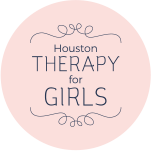 I always inquire about what medications my clients are taking and pay special attention when I learn a client has been prescribed isotretinoin, more popularly known as Accutane®, because this is a medication that has the potential to have some significant impacts not only on a client’s skin, but also on their mental health. To find out more about what exactly isotretinoin is and the ways it can impact girls I turned to my sister, who is currently in her dermatology residency, to fill me in on the important details. I am so excited to have this opportunity to collaborate professionally with one of my favorite people on this planet!
I always inquire about what medications my clients are taking and pay special attention when I learn a client has been prescribed isotretinoin, more popularly known as Accutane®, because this is a medication that has the potential to have some significant impacts not only on a client’s skin, but also on their mental health. To find out more about what exactly isotretinoin is and the ways it can impact girls I turned to my sister, who is currently in her dermatology residency, to fill me in on the important details. I am so excited to have this opportunity to collaborate professionally with one of my favorite people on this planet!
What is isotretinoin?
Isotretinoin (commonly referred to by one of the brand names Accutane) is a vitamin A derivative prescription pill that treats severe acne involving deep, large, painful bumps that can leave behind either pigment changes in the skin or scars.
How does it work?
No one really knows how it works exactly, but it shrinks the oil glands, unclogs pores, decreases the amount of a bacteria associated with acne, and decreases inflammation. While there is not a cure for severe acne, it’s the closest thing dermatologists have!
What are the potential side effects?
Isotretinoin unfortunately has many potential side effects, but most patients do very well with it. The most common side effects that I see are dry lips and dry skin. You definitely have to carry around lip balm while taking it! Some other side effects include headache, vision changes, nosebleeds, sun sensitivity, joint and muscle aches, worsening depression, liver damage, and increasing of blood lipids called triglycerides.
Depression is a tricky subject and having severe acne has been shown to contribute to worsening depression. It has been difficult to sort out in studies if the problem is severe acne or isotretinoin. For me, it depends on how severe my patient’s depression has been. I like to work with my patient’s mental health providers and make sure that they are okay with a course of isotretinoin before starting. Although it has been associated with worsening depression, I also have walked into the room to see my patients beaming after completing a course of isotretinoin. Improving acne can be a real confidence booster, especially for my teenage patients. I think there isn’t enough evidence to tip the scales in either direction, so our patients’ mood and well-being is something that we monitor monthly both with patients and their parents.
What medical supervision is necessary while a patient is taking isotretinoin?
Your dermatologist will need to see you monthly to see how you’re doing with your acne and if you’re having any side effects with the medication. Your dermatologist will want to check a couple of blood tests before and after starting the medication.
Isotretinoin can cause severe birth defects, so the Food and Drug Administration (FDA) requires patients to enroll in a program called iPLEDGETM that monitors patients to ensure that they do not become pregnant on the medication in addition to taking monthly pregnancy tests.
Who is considered a good candidate to take isotretinoin?
I prescribe isotretinoin on a case-by-case basis after talking to my patient and her parents. Some patients start isotretinoin the first time they visit a dermatologist, and for some, we try topical acne medications and other types of prescription pills first. Isotretinoin requires a pretty big commitment from both the patient and her parents that depends on many factors from the patient’s medical history to her academic and social life. For example, if my patient is about to start track, it’s probably not a good time to start isotretinoin because she’ll likely experience more side effects of muscle pains and sun sensitivity, and it will be difficult for her to come and see me monthly between practices and meets.
How long is a patient typically on isotretinoin?
The goal for isotretinoin is a cumulative dose that adds up over time, which usually takes about 4-7 months. The course varies based on the patient’s weight, if you go “low and slow,” or if you can tolerate a higher dose, which takes less time. Some patients may have to do another course of isotretinoin down the road or restart topical acne medications after completing an isotretinoin course, and some people never need to treat their acne after completing an isotretinoin course.
